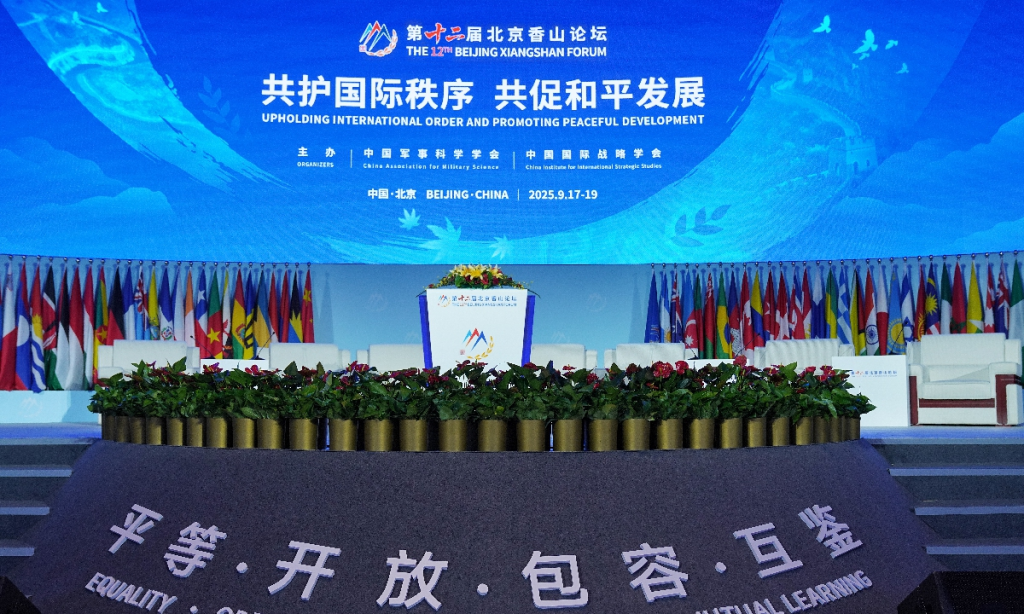International Security Dialogue in the Midst of Global Disorder
The world today is entering a phase commonly described as global disorder. The post Cold War order, once thought to be stable under unipolar leadership, has instead been marked by increasing turbulence. The ongoing Russia–Ukraine war, the protracted conflicts in the Middle East, tensions in the South China Sea, and the intensifying technological and trade rivalry between the United States and China expose the fragility of the multilateral system. Alongside these traditional threats, non-traditional challenges such as climate change, global pandemics, cybersecurity, and energy insecurity further compound the global burden, underscoring the urgency of collective responses.
In this environment, traditional institutions like the United Nations are often perceived as slow or ineffective. The inability of the UN Security Council to reach consensus on major conflicts has reinforced the conviction that global security requires additional platforms, more flexible, inclusive, and agile in fostering communication across nations. Security and defense forums have thus emerged to fill this gap, providing venues for statesmen, scholars, and practitioners to deliberate on contemporary threats. Beyond conferences, these forums function as instruments of diplomacy, building trust and sustaining communication channels when official state-to-state dialogue is stalled. In today’s climate of uncertainty, such platforms have become indispensable for preventing further descent into conflict.
Among these, the Beijing Xiangshan Forum has gained prominence in the past two decades. Launched in 2006 by the Chinese Society of Military Science with government support, it began as Track II diplomacy, involving academics and non-official participants. By 2014, it had advanced to a Track 1.5 format, attracting defense ministers and senior officials alongside think tanks and scholars. This evolution reflects China’s ambition to employ Xiangshan as an official platform to project its security narratives and global vision.
Held annually in Beijing, the forum adopts themes centered on peaceful development, security governance, and, more recently, President Xi Jinping’s Global Security Initiative. With participation from over one hundred countries in 2025, Xiangshan has become not only an academic gathering but also an instrument of Chinese soft power, cultivating its image as both a regional stabilizer and a counterweight to Western-dominated narratives. The natural comparison is with the Shangri-La Dialogue in Singapore, convened since 2002 by the International Institute for Strategic Studies. Shangri-La has become the premier stage for Asia-Pacific security discourse, dominated by Western powers, particularly the United States, the United Kingdom, and Australia. High-level U.S. officials frequently use the forum to announce policy positions, often focusing on freedom of navigation and criticizing China’s maritime expansion.
By contrast, Xiangshan functions as China’s deliberate counterpoint to Shangri-La. Its discourse emphasizes non-intervention, multilateralism with Chinese characteristics, and opposition to what Beijing calls exclusive blocs such as AUKUS or the Quad. While Shangri-La is marked by skepticism toward Chinese assertiveness, Xiangshan enables Beijing to clarify its positions, resist the “NATO-ization” of Asia, and advance rhetoric of win-win cooperation.
On the global stage, Xiangshan is often compared to the Munich Security Conference (MSC) in Germany. Since 1963, MSC has served as the benchmark for international security discussions, convening heads of state, diplomats, and industry leaders to address issues ranging from the Ukraine conflict to terrorism, energy, and cyber threats. Munich’s strength lies in its continuity and credibility as NATO’s agenda-setter. Xiangshan, however, offers a distinct Asian voice. Where Munich frames threats through Western lenses, Xiangshan highlights multipolarity, the Global South, and balancing security with development. It is, in essence, China’s attempt to establish an Asian counterpart to MSC and reinforce its vision of a multipolar order.
The Raisina Dialogue in India provides another useful comparison. Since its inception by the Observer Research Foundation with support from India’s Ministry of External Affairs, Raisina has grown rapidly as a platform reflecting India’s aspiration to mediate between East and West. With its focus on the Indo-Pacific, digital sovereignty, and inclusive development, Raisina projects India as a balancing actor. Xiangshan, by contrast, is more explicitly an extension of China’s global messaging. Meanwhile, regional forums such as the ASEAN Regional Forum or the Jakarta International Defense Dialogue exist, but their global resonance remains limited compared to Shangri-La or Xiangshan.
The strategic value of the Xiangshan Forum lies in its role as a vehicle for Chinese strategic messaging. It allows Beijing to project a benevolent image, promote multilateralism, and propose solutions to global challenges. Yet critics argue that it operates less as an equal dialogue and more as a megaphone for Chinese foreign policy. Western observers often describe it as an echo chamber, reinforcing Beijing’s legitimacy while offering limited space for dissent. Nonetheless, Xiangshan provides developing nations an alternative platform where they can articulate their perspectives without being overshadowed by Western dominance.
For Indonesia, the forum offers opportunities to assert its position on the South China Sea, pursue defense cooperation with China, and maintain access to other global platforms such as Shangri-La or Munich. In this role, Indonesia can serve as a bridge, leveraging multiple forums to safeguard national interests while contributing to the construction of a more equitable multipolar order. The rise of the Xiangshan Forum reflects a broader shift in the architecture of global security. Where discourse once centered around Singapore or Munich, Beijing has created a platform of growing influence. From a geopolitical perspective, Xiangshan is more than an academic gathering, it is a stage for the contest of legitimacy between China and the West in shaping the future order.
Ultimately, the comparison with Shangri-La, Munich, and Raisina illustrates that each forum carries its own political identity and strategic role. Xiangshan stands as a symbol of China’s assertiveness on the world stage and offers an alternative pathway for a multipolar world. In the midst of global disorder, marked by uncertainty and fragmentation, such forums remain vital instruments for sustaining communication, preventing escalation, and charting collective solutions to the pressing challenges of humanity.
Jakarta, 19 September 2025.
Chappy Hakim
Center for Air Power Studies Indonesia.
Compiled and synthesized from various sources


